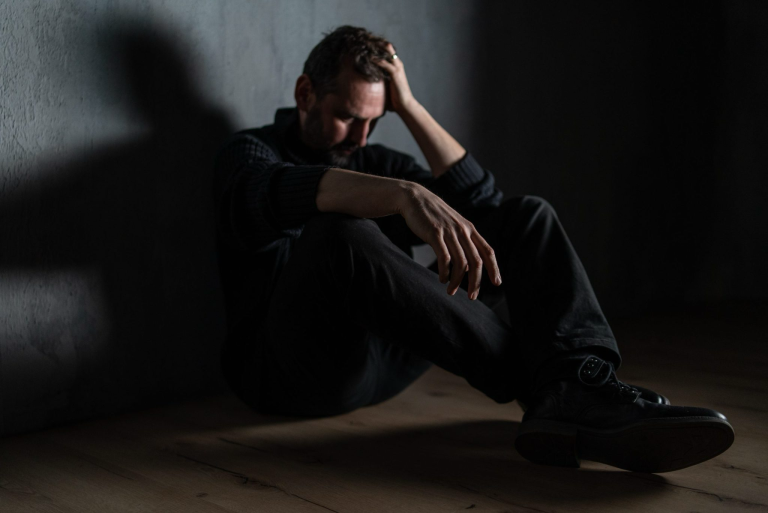Grace Has No Outdated Addresses
I spent thirty years as a high school teacher, and I learned something important about shame from watching my students. When I had to correct poor classroom behavior, the kids who actually needed it most—the ones I privately called the “Future Felons of America”—barely flinched. My words bounced off them like an errant skeeball headed for the gutter.
But the sweet, hard, working kids, the ones who actually made teaching a joy? These wonderful students would deeply absorb the correction that wasn’t even meant for them, and turn it into deep personal shame.
At the time, I had no idea I was watching a preview of the internal dynamic that would one day plague my life.
Lightning Bolts from Nowhere
For the past several years, I’ve been ambushed by what feels like lightning bolts of guilt or shame. Out of nowhere, a memory from decades ago—often from my teenage years—flashes into my mind, and my whole body jerks as if I’ve been jolted by electricity. There’s no real physical pain, but my body responds like there is.
Here’s the strange part: when I make a concerted effort to recall these incidents, I’m fine. I can tell myself I was young, still learning how to live, and that everyone makes mistakes—especially when they are young.
I remind myself that for years people have commented on my kindness, generosity, and care for others. All that should matter more than these ancient shame attacks.
But when the memory barges in uninvited, the damage is instant—before my rational mind can get a word in.
Calls for Someone Who Doesn’t Live Here Anymore

These episodes feel like getting hateful phone calls for someone else. It is as if my number once belonged to a different man decades ago, and I’m still answering calls full of abuse and malice meant for him.
The voice shouting “You’re so stupid!” isn’t talking to me—it’s talking to that young man still finding his way toward the man he would one day be. Joe grew up. Joe became me. But the hate calls keep coming to the same number.
Ironically, almost all these painful memories are about a person who no longer exists except in the recesses of my mind. Many of the people from those moments are long dead. I know I was rude and unfairly critical to many people growing up. If I were to go to one of those people and apologize today, the vast majority would not even remember the event. And the ones who could recall it, would wave it off and say something like, “we were just dumb teenagers back then.”
It is clear to me that I have become the sole custodian of pain for actions no one else even remembers or cares about. It’s as if my amygdala—my brain’s walnut-sized alarm system—still has outdated contact information.
The Prosecutor Who Thinks He Knows Better Than God

The relentless nature of this internal persecution reminds me of something from The Twilight Zone. There’s a haunting episode where Dennis Weaver’s character dreams every night that he’s on trial for his life and facing execution. The faces of the other players in his nightmare change each night—but it’s always the same trial and outcome.
That’s exactly what chronic shame feels like: an endless courtroom in my head where I’m never acquitted.
As a man of faith, I have learned to forgive others freely. I believe I’m forgiven by God, and yet I can’t seem to extend that grace to myself.
The voice that flashes into my head has made itself more demanding, more unforgiving, and more righteous than God.
The nightmare persists not because I’m guilty. It persists because some part of me refuses to accept the acquittal I’ve already earned.
The Double Standard
Perhaps the cruelest thing is the double standard. I give infinite compassion to others. I forgive freely. I see other people’s mistakes as human and understandable.
But that teenage version of me? Him I prosecute relentlessly.
I’ve made myself the one being in existence unworthy of the mercy I give everyone else.
The Growing Gap
The cruel irony is that the attacks seem to intensify as I grow. Each new lesson in kindness, each breakthrough in wisdom, somehow makes those old memories feel more shameful.
It’s like zooming in on an old photograph—suddenly every flaw becomes magnified, and instead of just seeing them, I am plagued by them.
I’m being punished by my own virtue.
Finding Protection

I’ve noticed these attacks don’t happen when my mind is actively engaged. If I’m listening to a great audiobook or writing a story at my computer, no errant thoughts can break through.
The trouble comes in quiet moments—driving without conversation, waiting in line, or anytime my analytical brain isn’t occupied. My ever active mind craves engagement, but when it’s left idle, the lightning bolts find their opening.
I’ve learned this isn’t about avoiding the problem—it’s about preventing it. I’ve had to become intentional in making sure to give my mind something constructive to chew on, leaving no room for ambush.
To Those Still Answering Old Calls

If you recognize yourself here—if you absorb criticism meant for others, carry shame for a person who no longer exists, or have become your own harshest prosecutor—know you’re not alone.
Our sensitivity, high standards, and deep empathy are gifts, even when they feel like curses. The same qualities that make us torture ourselves also make us the kind of people the world needs most.
The goal isn’t to become callous. It’s to parent that sensitive self with the kindness we’d give a struggling student. To stop answering calls for someone who doesn’t live here anymore.
And to remember: the prosecutor in your head doesn’t have the final say. Sometimes the most radical act of faith is hanging up on those hate calls and trusting that the person you’ve become is worthy of the same grace you give so freely to others.
Because Grace lives in the present.




